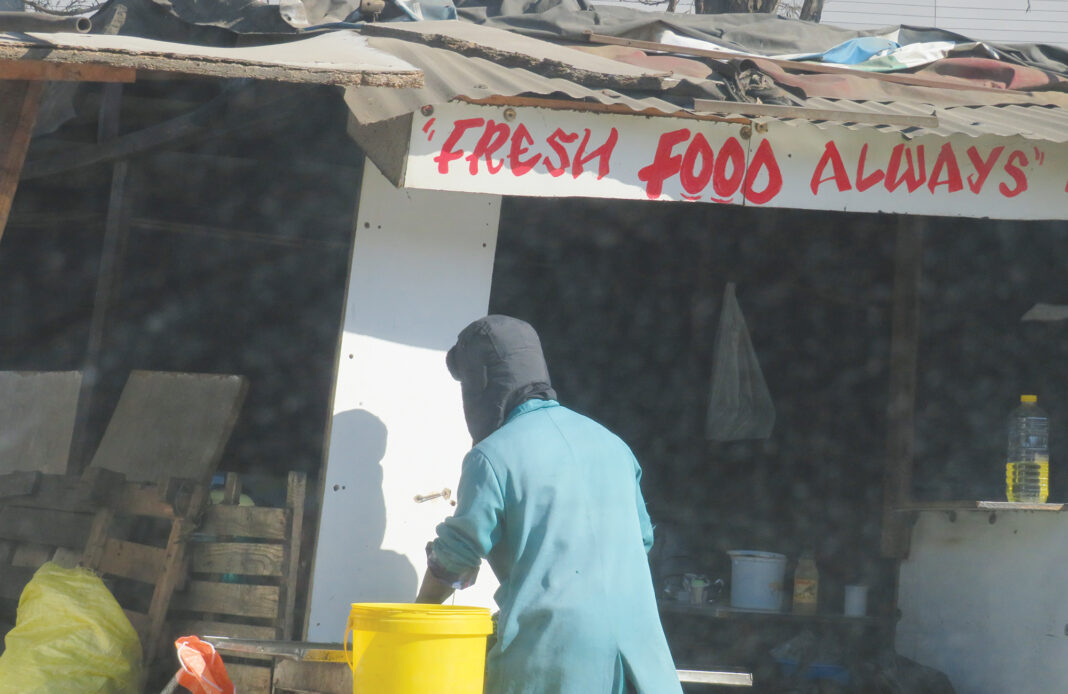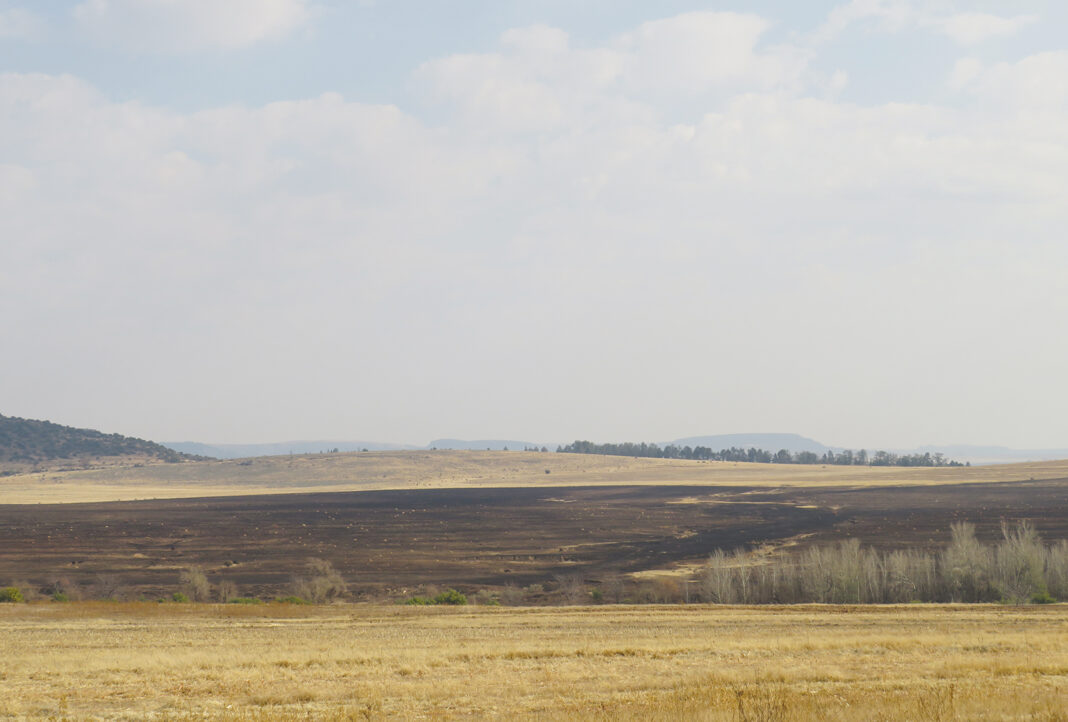By ‘Majirata Latela
Consumers of food commodities sold in the streets of Maseru are facing a health risk due to unhygienic conditions under which the food is prepared.
theReporter this week took to the streets to conduct a random inspection of the conditions under which the vendors sell their food.
In the small and congested marketplace known as ‘Ha Mafafa’, there many people preparing and selling food. Several vendors there sell food stuffs such as meat, papa, rice, roasted chicken and cooked vegetables,
One of the vendors Seisa Hlabathe, sells grilled and roasted meat served with papa and green vegetables.
He says members of the team that help him prepare the food have no training in home economics and food handling, that can qualify them as skilled in food safety.
However, he claimed that they practise the basics of food handling in order to ensure the safety of their food, by adhering to hygienic practices such as washing hands regularly. The utensils used, he added, are also thoroughly cleaned.
Despite a Maseru City Council ban on erecting shacks at the marketplace, he said the vendors use plastics, corrugated iron sheets and pallets to protect their food from adverse conditions and to avoid contamination.
“We also try our level best to cook enough food to sell in a day so that there are no leftovers that might rot. There is no completely safe space as the area is invested with mice and rats,” Hlabathe observed, adding there was a dire need for a clean environment.
“The facility we work from not well taken care of by MCC as you can see there is water running just in front of our shack. It’s been two years since we reported the matter but until now it has not been fixed. Although the water is clean it makes the environment waterlogged or unpalatably humid.
“We have had a few cases of people coming back to tell us that the food they ate made them sick but for some we realised that they were allergic to our sauce. Some have therefore opted to refrain from eating marinated meat. Other customers are just allergic to some of our spices,” he explained.
On the one hand Mpusetseng Nketsa who sells bread and ginger ale also agreed that the infrastructure they are working from is not suitable to conduct business, especially of selling food stuffs. The food, she observed, is sometimes exposed to winds posing a threat to both our health and that of the customers.
She also agreed that she only knows the basics of keeping and cooking clean and safe food for consumption. She has not gone for any training in food handling and wished she would be equipped in that aspect.
Street vendors, themselves operating in a disorderly space and some illegally, complain of the inhabitable and unhygienic conditions not fit for business, especially those that sell food items.
During heavy rainfalls, they have to run the gauntlet of flooding from leaking sewerage, burst pipes and overflowing septic tanks along the streets.
Faeces, streams of urine, and rodents are a common sight on blocked water drainages at the bus and taxi rank near the Sefika Complex.
The food is prepared at conditions which are far from being acceptable in terms of environmental tidiness.
In an effort to overcome this, Lesotho is on track to designing a Food Safety Policy in line with the sanitary and phytosanitary (SPS) Annex VIII to the Southern African Development Community (SADC) Protocol1 on Trade to help minimize illnesses associated with food while also enhancing trade.
According to the draft food policy, some of the challenges which were picked about food safety in Lesotho include gaps in the national regulatory and institutional frameworks which result in the inspection system facing some challenges.
The need for increased training for inspectors and other staff and weak infrastructure capacity to perform effective inspection activities were identified as some of the difficulties.
The draft, dated 2021, shows that Lesotho has decided to develop a food safety policy with an associated implementation strategy that will advance the national food control system based on national and international standards.
The objective is to safeguard human, animal, plant and environmental health as well as the facilitate trade through the application of science based principles, enabled by an integrated institutional framework, effective interagency collaboration, appropriate legislation and strengthened public and private sector partnership.
The ministry of health which is spearheading the policy design has shown that by the end of this month it is expecting the consultant to round up work on the draft ahead of being handed over to the government for approval.
Ministry of health safety and programme manager, Motsamai Mahahabisa, told this publication that the food safety policy would guide in ensuring that safe food is produced for public consumption.
“The policy is also going to help us update our laws on food safety and to update ourselves as the inspectors on how we do the inspection. Not only is it going to help the inspectors, it is also going to help consumers know the food type they consume.
“When we have the right laws on food safety, they will help to prevent food fraud, which is the selling of unpalatable stuff to the customers. It will ensure that the right food is supplied to the consumer,” Mahahabisa said.
He recalled that there have been reports of consumers being sold different food stuffs from those they intended to buy, sparking fears of possible health threats.
The introduction of the food safety policy will enable food vendors to be trained in food handling. They will be awarded certificates and stickers to identify them.
He believed that would in turn help in increasing the number of customers and generate more income for the small businesses.
The sale of prepared food from cars has also become a common sight in the streets of Maseru.
The food safety policy draft is said to be drawn on Codex guidance, primarily from the document on principles and guidelines for national food control systems (CAC/GL 82-2013), but also relevant documents such as Codex General Principles of Food Hygiene CAC/RCP 1-19691.
The principle is that national governments and their competent authorities should develop policy objectives for their food control system to protect the health and safety of consumers and help assure the safety and quality of foods being traded both nationally and internationally.
Control systems ensure that food available within a country is safe, wholesome and fit for human consumption, conforms to food safety and quality requirements and is honestly and accurately labelled as prescribed by the law.








